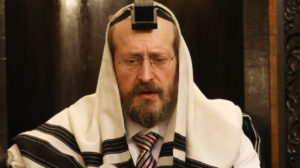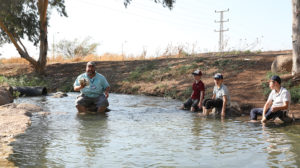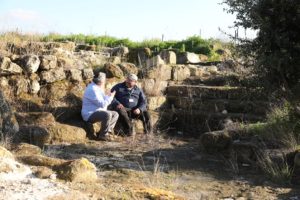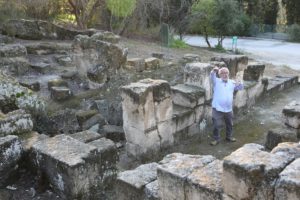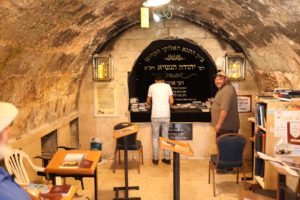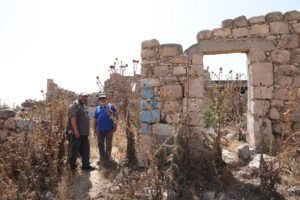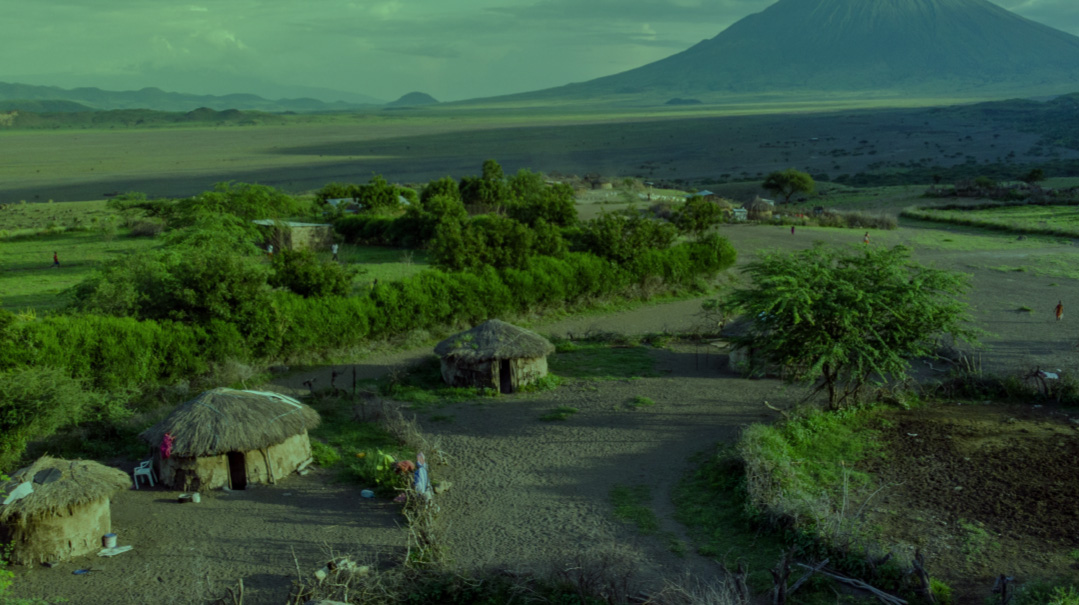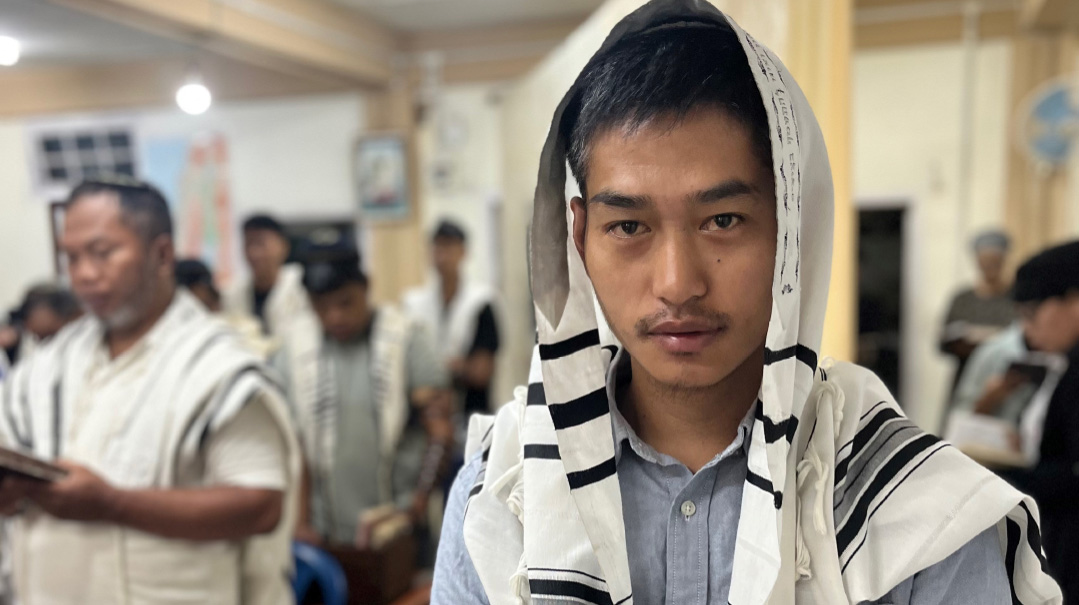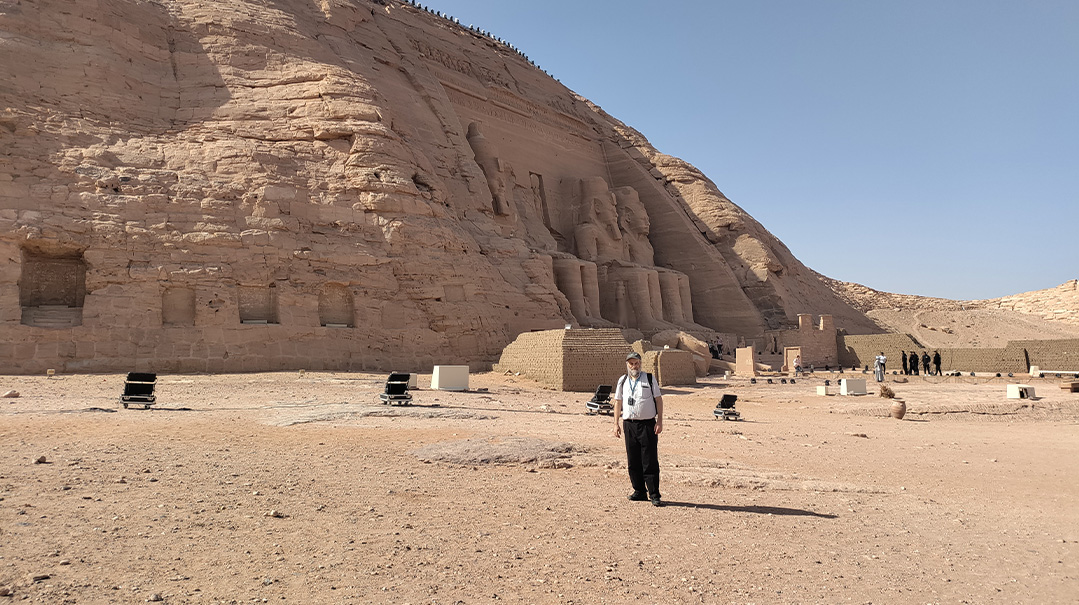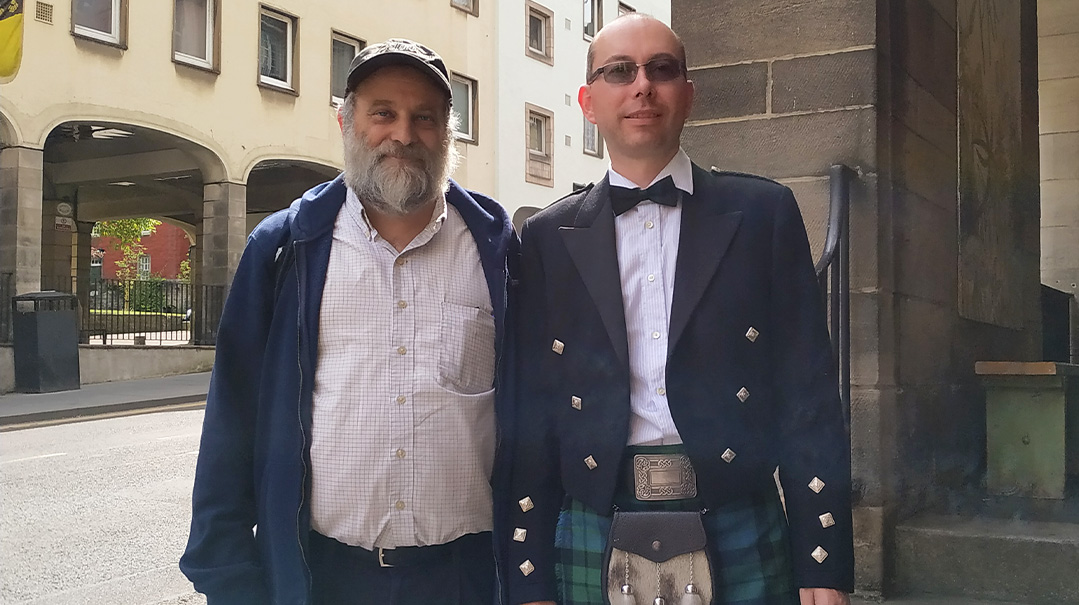The Untouchables Reach Out
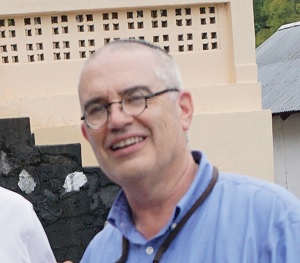
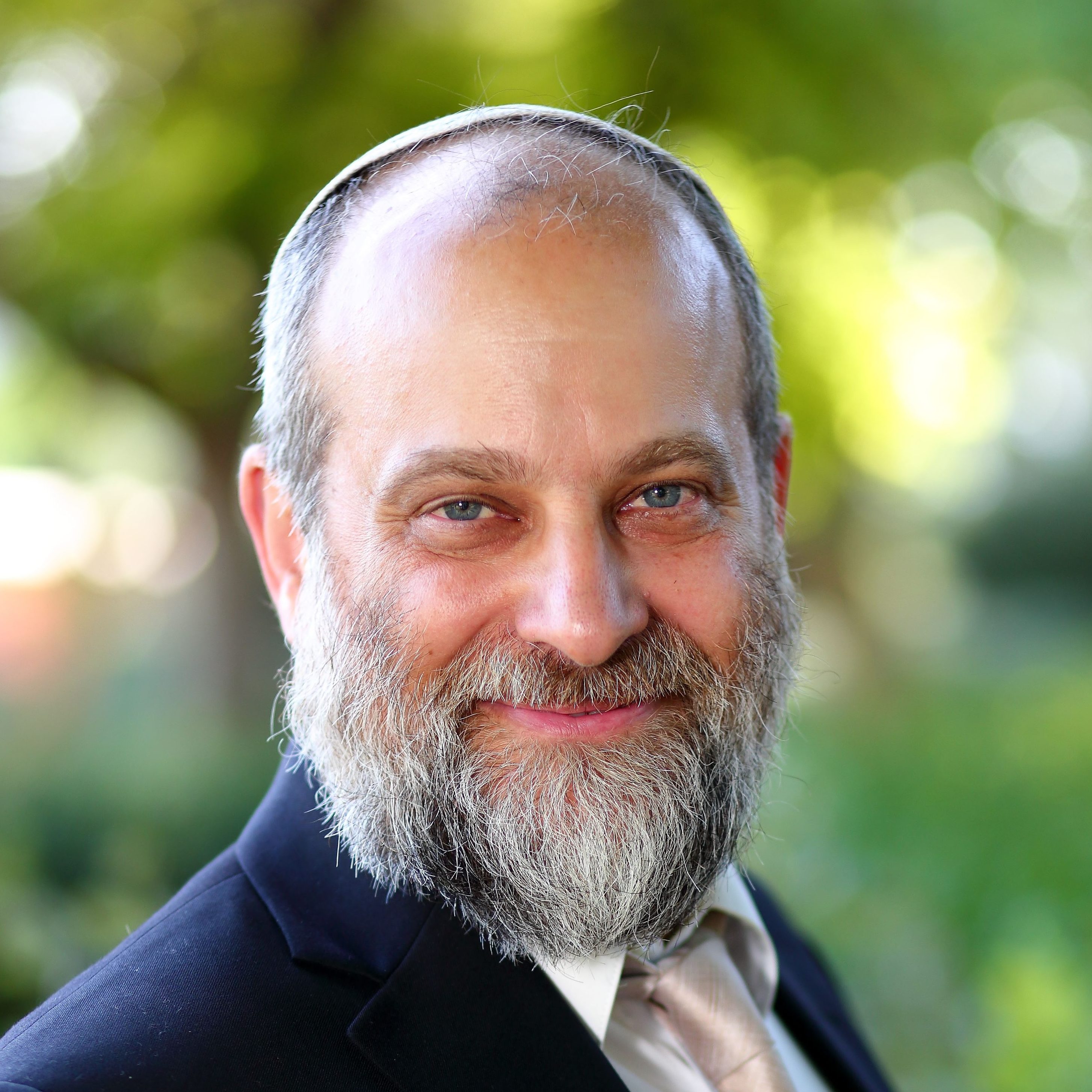

In the Bnei Ephraim house of worship Ari G. takes a paper Torah from the aron kodesh. It may not be halachic but it's a symbol of passionate allegiance.
It was an incongruous scene. Here we were looking at a huge modern sugar factory set back among miles of rice paddies being stocked with sugarcane. But there were no sophisticated tractor-trailers for transporting the crop — instead there were small lumbering bull-drawn carriages with a driver holding a whip sitting high atop piles of the cane. Our escort explained to us that the factory is actually cutting edge but that if the cane would no longer be brought by these small carriages many people would lose their jobs. Welcome to India of 2016 and how the incongruity of modernity and old-world behaviors affect this nation of over 1 billion people.
Our guide knows all too well about this phenomenon of old and new existing side by side. Because he’s part of an old-new group who call themselves Telugu Jews. Tucked away in the southeast of this massive subcontinent where Telugu is the spoken language is a small and largely unknown community who claims descent from the lost tribe of Ephraim — the self-proclaimed Bnei Ephraim or Telugu Jews.
The story of this community is truly remarkable and what they lack in contact with other Jews they are compensating for with effort and desire. The core of the congregation is really just one family — the family of Shmuel Yacobi and his brother Sadok.
Lost Links
It is important to understand that while legally nonexistent the caste system is still very much alive in India — and this played a major role in Shmuel Yacobi’s search for his own roots. The caste system is a social stratification that gives certain groups prominence and others a hard climb out of poverty. The lowest of the lowest are the “untouchables.” They traditionally were not touched — the ones who cleaned the outhouses and swept the streets. Shmuel Yacobi is the eldest of six children and they are from the untouchable caste. Their father Yacob however understood that education was the only way up and out and so he enlisted in the Indian army during World War II learned English acquired an education and became a schoolteacher.
The family had been practicing Christianity from the time missionaries came to India in the 1800s and once Shmuel Yacobi internalized his father’s message he learned English and became a Christian preacher. Life was good his salary was respectable and he established international connections and traveled — yet he was becoming unsettled feeling a growing disaffection with the Christian world.
Shmuel and his brothers remembered their grandmother telling them that although they were subsumed under the umbrella of Madigas a Telugu untouchable caste they descended from Jews. In the early 1980s Shmuel visited Israel for the first time and after encountering people of the modern world actually living Judaism returned to India intent on living as a Jew himself.
Shmuel eventually convinced his siblings and about 30 other families from his home village to join him in this new religious frontier. His two brothers Sadok and Aaron became leaders with him in the community — teaching themselves Hebrew and studying Torah with the materials Shmuel brought from Israel on his initial trip and on two subsequent trips within the next few years.
In 1992 he and his brothers established the Bnei Ephraim congregation — officially called the “House of the Children of Yacob” — whose members although certainly not Jewish according to halachah began living as Jews. (Aaron a young man at the time died of tuberculosis in 1993.)
Shmuel Yacobi believes that descendants of the Lost Tribe of Ephraim originally displaced in what became the Persian Empire continued their wanderings until ultimately coming to northern India and Afghanistan and eventually settling in nascent Telugu-speaking areas sometime in the ninth or tenth century. He hypothesizes that there was a significant influence of Hebrew on Telugu having found sources for many words in proto-Telugu.
Furthermore according to Yacobi ancient Jewish texts and traditions were used by the local inhabitants in the formulation of their own religions and cultures. He further argues that these Telugu Jews remained a separate and distinct group for many centuries until Baptist missionaries arrived in the 1800s and converted much of the population to Christianity.
Today he says although there are only a few Bnei Ephraim who are aware of what he believes to be their true Israelite origins he presents and explains his theories in his densely written The Cultural Hermeneutics: An Introduction to the Cultural Translations of the Hebrew Bible among the Ancient Nations of the Thalmulic Telugu Empire of India” — a 400-page work that he published in 2002.
Jewish Hospitality
Evidence or not over the years Yacobi’s group has attracted dozens of additional followers and it is this community that we were going to meet. We had been leading an OU mission to Jewish India before Purim earlier this year but had informed the organizers in advance that we would be peeling off from the group on the final day and a half in order to visit this little-known community. We advised our Bnei Ephraim contact that we were really keen on visiting and that although we would be on the ground for less than 24 hours we were willing to sleep little in order to meet as many people from their community as possible.

In this forsaken Indian village we faced a packed room of Telugus-already practicing Judaism and thirsty to learn more.
It is a poor community (poor even by Indian standards) although many years ago Shmuel Yacobi helped the members become self-supporting with projects such as organic farming water buffalo raising and other small businesses. Today some of the families still have a few water buffalo that they raise near their home for personal use. They have also received some assistance from the US-based Kulanu organization for poultry and water buffalo projects.
Considering that there are actually two Bnei Ephraim communities located several hours apart we knew that our schedule would be tight. But when our suggested itinerary arrived by e-mail we were shocked to see that we would be teaching and speaking with them until after 2 a.m. and then reconvening for Shacharis at 7 a.m. We assumed that it was a bit of hyperbole but responded that we were good to go. It turned out not to be an exaggeration and the group that we dialogued with until the wee hours of the morning spanned ages 7 to 77.
Oops! We could not locate your form.

